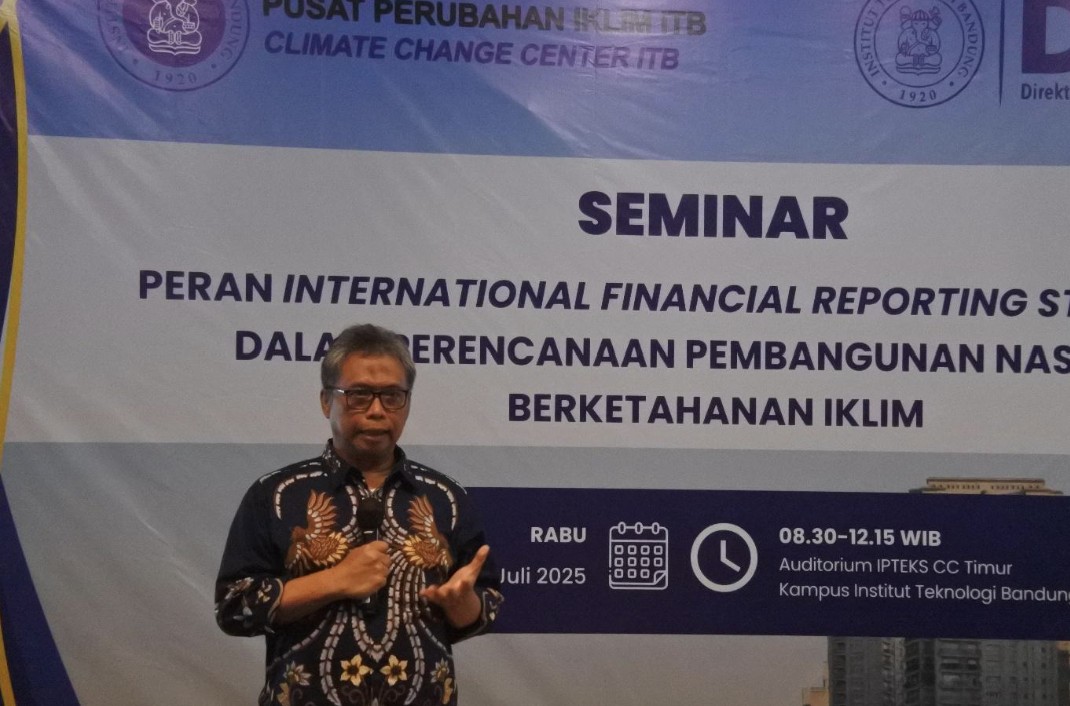National Seminar on "Challenges and Opportunity of CDM Implementation in West Java": CDM for Reducing Emission
By niken
Editor niken

Rector of ITB, Prof.Dr. Ir. Djoko Santoso, MSc, on this occasion gave the opening speech while officially opening the event. In the speech, he said that we as humans can not be separated from nature, we are holding role to speed up or slow down the process that occurs in nature.
Climate change is a problem that until now could not be completed by men, although many declaration have been made that support the anticipation of movement to avoid climate change, one is the Kyoto Protocol. The Kyoto Protocol is a form of real commitment from the countries in the world to prevent or at least reduce this process of climate change. Held in Kyoto, Japan, on December 11, 1997 and open to be signed start of March 16 1998 until March 15 1999. Indonesia and almost all countries in Asian region have signed and ratified the Kyoto protocol.
Clean Development Mechanism (CDM) is a mechanism that allows the cooperation between nations in reducing the impact of climate change. CDM is expected to make developed countries to allocate funds to developing countries to develop emissions reduction projects. In Indonesia, the CDM mechanism is supported by the presence of the Board of the National Climate Change. CDM projects are also sustainable development project, that is development that meets the needs of current generations without destroying the needs of the next generations. As a sustainable development project, CDM must meet the 4 components, namely
1. Social components, CDM projects should not cause social conflict in the community
2. Component Economy, CDM projects contribute positively for local economic development and national
3. Component Environment, CDM projects contribute to the environment, such as water, air, land
4. Technology, CDM projects must contribute to the development of technology in the host country
In Indonesia, the carbon emissions of gas has reached 36 million tons of CO2 per year. Potentially CDM projects in this country, namely renewable energy, and increasing energy efficiency. For example, the energy that is being developed such as geotermal in several areas such as in Java, Sulawesi, Sumatra and Lampung, and the powerplant that the source from biomass. Unfortunately, there are still some obstacles in the implementation of CDM, such as institutional issues, economic issues, techniques and policies.
National Seminar on "Challenges and Opportunity CDM Implementation in West Java" is an event organized by Ganesa Green, a program of work of the Ministry of Education and scientific Student Government (KM) Cabinet ITB 2009. Green Ganesha this year has a mission "ITB = ZERO WASTE", realizing the ITB as an environment campus that has optimal management in waste and the communities behaviour of minimizing waste.

.jpg)
.jpg)
.jpg)
.jpg)
.jpg)


